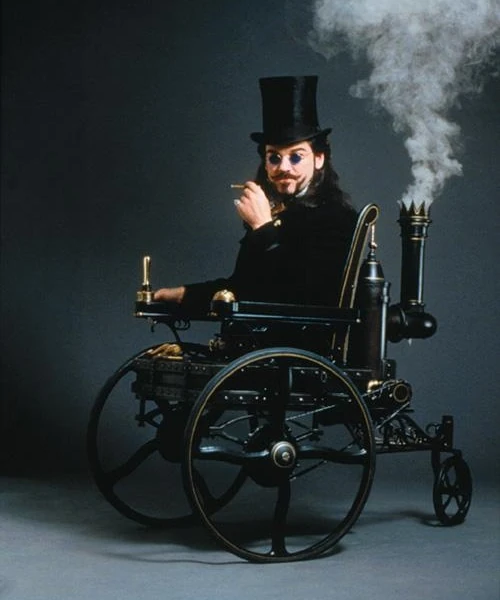 |
| Asylum Steampunk Festival (Lincoln 2019) |
If you walk around the streets of Lincoln during the annual Asylum Steampunk Festival (the largest and longest running steampunk festival in the world), you will hear that the steampunks – easily identifiable by their dress – speak in many different languages. While the appeal of steampunk has certainly broadened its horizons, one cannot help but feel that it is most warmly received by white Europeans, nostalgic for empire.
Clad in pith helmets, these intrepid explorers lament that America has overtaken the European powers to become the dominant global superpower. Steampunks long for a return to the good old days of European supremacy that were only ever possible because of colonisation. Steampunk as a fantasy where Europeans continue to dominate the world using (new) pre-digital technologies. Outsourcing labour leaves Europeans with a nostalgia for the days when they could actually make and repair things. Nostalgia is evident in the dressing up (not just literature) – people want to have a go at living this alternative reality. |
| Dr Arliss Loveless |
Critics will rightly point to the reception that steampunk
has in the United States. Films such as Eli Roth’s The
House With a Clock in its Walls (2018) and Barry Sonnenfeld’s Wild Wild West
(1999) are testament to steampunk’s popular appeal in America. Arliss Loveless,
the baddie in Wild Wild West, is a
racist played by a British actor. The British baddie is, of course, a Hollywood tradition who (potentially) represents the way that contemporary Americans continue to view the old
world as a threat. On the surface racism in Wild Wild West (both the British and confederate varieties) is a bad
thing to be combated. However, this belies the colonial
nostalgia of Wild Wild West and,
indeed westerns more generally. Will Smith’s character James West might be
black, but the metanarrative here is that, together with the white folk, he
will wipe out the indigenous peoples to establish a white European colony.
It
should not be surprising that the Antebellum South is receptive to steampunk
ideas. This analogue era was prosperous because of slavery; this was halted by
progressive new ideas and technologies. The Antebellum South was an
agricultural society, somewhat resistant to the industrial north. As such, it
represents a pre-industrial, and therefore pre-steam power, mentality. This
seams not to matter in Wild Wild West,
where white colonial nostalgia takes precedence over nostalgia for steam power.
This illustrates my first point: steampunk’s nostalgia for the analogue is a
proxy for its nostalgia for white European supremacy.
In the United States,
this means European ways and traditions supplanting indigenous and non-European
customs – the zenith of which is reached in The
House with a Clock in its Walls, which depicts a mainly white New England
society underpinned by ancient European superstition, magic and folklore. All
of the main characters are white, and the architecture speaks not to America (the
Art Deco Empire State Building, Diners and so on) but to Britain. In Europe,
the difference is that America itself becomes a proxy for that which supplanted
European supremacy, adventure and colonial expansion. After all, steampunk is
trapped in the Victorian age – the peak of European colonial domination.





























